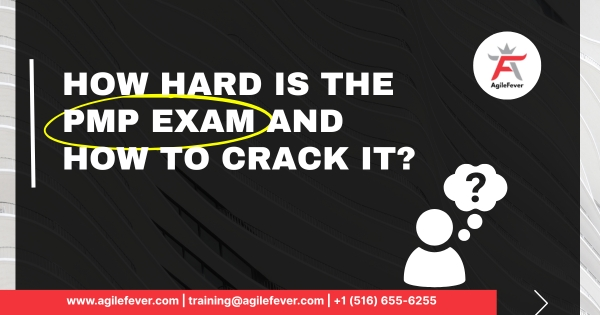What is pmp certification cost? Is it worth getting the Project Management Professional certification? What is the cost of PMP certification in 2025? If you are searching for all these queries and more then this complete guide is for you.
What Is the Project Management Professional (PMP) Certification and Why Is It Worth the Cost?
The Project Management Professional certification which is offered by PMI i.e., Project Management Institute, is a globally recognized credential for project managers. It validates the ability to lead the project across various industries using predictive, agile or hybrid methodologies.
For most of the professionals, the PMP is not just a certificate but it is a career booster. This certification lands at the high paying job roles and boost credibility which improves the project delivery skills. Initially you may feel that the cost is little high, but when you think about the long term benefits, then this will be the worth to get it.
How Much Does PMP Certification Cost in 2025?
Here’s a quick overview of the primary PMP certification costs:
- PMI Member Exam Fee: $405
- Non-Member Exam Fee: $555
- PMI Membership (Optional): $139 annually (includes $10 application fee)
- Retake Fee (Member): $275
- Retake Fee (Non-Member): $375
Choosing membership before applying can save you money on exam and retake fees.
Total PMP Certification Cost Breakdown (With Hidden Expenses)
PMP certification involves more than just the exam fee. Here’s a breakdown:
- Training Programs: $700 to $2,500 (varies by mode and provider)
- Study Materials: $100 to $400 (books, simulators, mock exams)
- Exam Fee: $405 to $555
- PMI Membership (Optional): $139
- Exam Retake (if needed): $275 to $375
- Renewal (Every 3 Years): $60 (for members)
Optional add-ons like coaching or extended access to simulators can also increase the total cost.
PMP Cost Calculator: How to Budget Based on Your Learning Path
Let’s break it down into typical paths:
Self-Study Path:
Books + Exam Fee + Simulator = ~$800 to $1,000
Online Bootcamp:
Course + Exam Fee + Materials = ~$1,000 to $1,800
Instructor-Led Training (Classroom or Live Online):
Course + Exam Fee + Coaching = ~$1,200 to $2,500
Use these as ballpark figures when budgeting for your PMP journey.
Is PMP Certification Worth the Price? ROI Explained
Yes, and here’s why:
- Average Salary Increase: PMP-certified professionals earn 16% more on average (PMI Salary Survey).
- Job Opportunities: Higher demand globally, across industries.
- Career Advancement: Qualifies you for senior project roles and leadership positions.
Most professionals recover their investment within the first 6-12 months post-certification.
What Influences PMP Training Program Costs?
Several factors affect the training cost:
- Geography: US-based programs typically cost more than India or Southeast Asia.
- Delivery Format: Live online and in-person programs are pricier than self-paced.
- Trainer Credentials: PMI Authorized Training Partners charge more, but provide better exam prep.
- Add-Ons: One-on-one coaching, post-training support, and practice exams can add to the cost.
PMP Certification Cost in Different Countries
| Country | Exam Fee (Non-Member) | Typical Training Cost |
| USA | $555 | $1,000 – $2,500 |
| India | $555 | $400 – $900 |
| Canada | $555 | $900 – $1,600 |
| UK | $555 | £700 – £1,600 |
| UAE | $555 | $800 – $1,900 |
Note: Exam fees are the same worldwide, but training cost varies significantly.
Common Mistakes That Raise Your PMP Budget
Managing your PMP certification expenses efficiently requires more than just tracking fees, it also means avoiding costly mistakes that can quietly inflate your total budget. Many candidates overspend not because of PMI’s pricing, but due to poor planning and lack of exam strategy.
Here are the most common pitfalls to watch out for:
- Paying for non-PMI accredited or low-quality training that fails to deliver real exam readiness.
- Underestimating preparation time leads to rushed study sessions and retakes.
- Ignoring the benefits of PMI membership, which can save money on exam and renewal fees.
- Missing or rescheduling exam results in lost registration fees or penalties.
- Spending on unnecessary premium study materials instead of focusing on verified content.
- Skipping mock tests and practice simulations, which are vital for exam confidence and time management.
The Real Value Behind PMP Certification in 2025
PMP certification isn’t just about earning a credential; it’s about transforming how you manage projects and lead teams. In 2025, the certification carries even greater importance as businesses demand professionals who can adapt to changing technologies, hybrid work models, and agile project execution.
Here’s what makes the PMP so valuable today:
- Strategic Thinking: PMP-certified managers understand how every task connects to larger business goals, improving efficiency and impact.
- Cross-Industry Relevance: From IT to construction, finance, healthcare, and manufacturing, PMP remains one of the most transferable credentials in the world.
- Career Advancement: Certified professionals are often considered for leadership and client-facing roles due to their proven ability to manage scope, budgets, and timelines effectively.
- Global Recognition: The PMP is recognized across 200+ countries, giving professionals the flexibility to work with global teams or relocate internationally.
In short, the PMP certification adds strategic, financial, and leadership dimensions to your career, giving you a strong edge in competitive job markets.
Key Factors That Drive PMP Training Costs in 2025
If you’ve noticed that PMP training programs cost more in 2025, there’s a reason. The price increase reflects the growing depth, interactivity, and personalization of modern learning experiences.
Some of the primary cost drivers include:
- AI-Based Learning Tools: Training providers now use AI-driven simulators and adaptive quizzes that mirror the real PMP exam experience.
- Live Instructor Access: Real-time mentoring, Q&A sessions, and feedback loops help improve understanding but increase operational costs.
- Updated PMBOK® Alignment: Each new PMI exam update leads to revised course materials, additional practice exams, and improved delivery methods.
- Certification Support Services: Post-training guidance, mock exams, and exam scheduling support all add to the total cost.
While these factors raise the upfront investment, they also significantly improve the first-time pass rate and reduce the need for retakes. Choosing a PMI-authorized training partner ensures every dollar spent adds measurable value to your PMP success.
How PMP Certification Delivers Career Growth and ROI
The true payoff of PMP certification becomes clear after completion, when doors to higher-paying and strategic positions begin to open.
Career Benefits of PMP in 2025:
- Higher Salaries: On average, PMP-certified professionals earn 16%–20% more globally.
- Better Job Stability: Certified project managers are preferred for high-value projects and leadership tracks.
- Career Mobility: PMP certification helps professionals switch industries or work across global locations.
- Professional Credibility: The PMP credential signals to employers that you can handle complexity, uncertainty, and diverse stakeholder expectations.
Beyond the tangible financial ROI, PMP certification also builds confidence and credibility in decision-making and project governance.
It positions you as a leader who doesn’t just manage tasks but drives organizational outcomes.
Conclusion
PMP certification is more than a credential, it’s a career investment that delivers measurable returns. While the cost may seem high, the long-term rewards in salary, job security, and professional credibility far outweigh the initial expense. By choosing PMI-authorized training, leveraging membership discounts, and preparing strategically, you can maximize every dollar spent. With growing global demand for certified project managers, earning your PMP in 2025 is a smart, future-focused decision. Join the AgileFever PMP Masterclass, a PMI-Authorized training designed to help you pass the exam confidently on your first attempt. Get live expert sessions, updated 2025 learning modules, and guaranteed 35 contact hours to qualify for your exam.
Can You Reduce Your PMP Certification Costs? (Yes, Here’s How)
Absolutely. Here are some smart strategies:
- Get PMI Membership: Saves $150 on exam fees and gives access to free resources.
- Look for Offers: Many training providers offer seasonal discounts.
- Corporate Sponsorship: Check if your employer reimburses certification expenses.
- Use Free Resources: Leverage PMI’s free PMBOK Guide, forums, and mock tests.
FAQs on PMP Certification Cost
Q1. Is PMP worth the money in 2025?
Yes. The global demand for certified project managers is rising, and PMP significantly increases your earning potential.
Q2. Can I get PMP certified for under $500?
Unlikely, unless you already have training access or use only free materials. Most self-study paths still cross $600.
Q3. Do employers reimburse PMP certification costs?
Many do, especially in IT, engineering, and consulting sectors. Always check your company’s policy.
Q4. Is PMI membership required to take the exam?
No, but it reduces exam and renewal fees and grants access to valuable study resources.
Q5. Are there any free PMP prep resources?
Yes. PMI offers a free digital copy of the PMBOK Guide. Forums like Reddit and LinkedIn groups also provide study tips.
Q6. How much does PMP renewal cost?
PMP Certification Costs $60 for PMI members, $150 for non-members, every 3 years.
Q7. What’s the cost of retaking the PMP exam?
The PMP Exam cost is $275 for members, $375 for non-members.
Q8. What if I cancel or reschedule the exam?
Rescheduling within 30 days of the exam incurs a $70 fee. Canceling late or missing the exam forfeits the fee.
Q9. Does Agile or PRINCE2 cost less than PMP?
Yes, both generally cost less. But PMP has broader global recognition and a higher salary payoff.
Q10. What’s the most affordable way to get PMP-certified?
Join PMI, choose a budget-friendly online training, use free resources, and stick to your exam schedule.
Do you still have questions? Then let us know them in the comment box below. Our experts will get back to you on the same.



